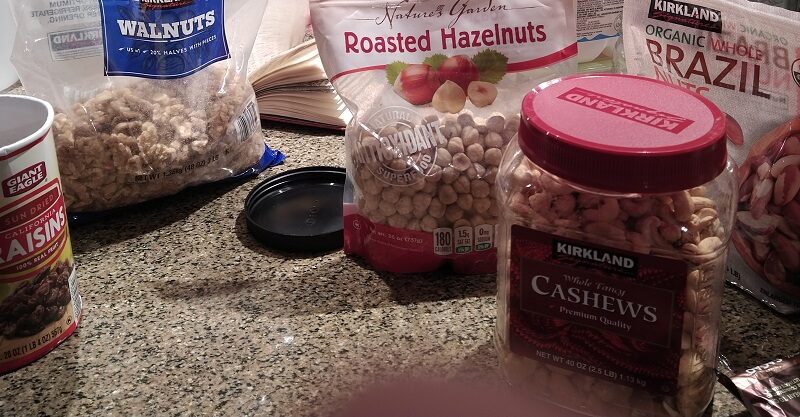In 1975, the Senate adopted a rule change that makes me think of the beginning of Hitchhiker’s Guide to the Galaxy. A chap’s house is scheduled for demolition for “progress” — a new motorway. He lays down in front of the bulldozer to prevent his house from being smashed to bits, but his neighbor wants to hop over to the pub. So they explain to the crew manager that the chap could spend the day laying in front of the bulldozer; and, as such, it should be taken that he is laying in front of the thing even if he’s not. In the book, the answer is immaterial since the entire planet is slated for destruction so an interstellar motorway can be put in … and the discussion is meant to be fascicle regardless.
A filibuster isn’t really a legal construct — debate in the Senate could continue until everyone has had their say. That’s a process intentionally designed to slow legislation — to prevent knee-jerk responses to immediate situations. Using your ability to keep “debating” the bill to stall (or table) a bill is known as filibustering. Since 1917, Senate Rule 22 defines a “shut up and let’s vote” process (cloture) that closes debate on a bill and moves it to vote. It takes more people to invoke cloture than it does to pass a bill — 67 votes in 1917, 60 votes since 1975 — meaning the minority party potentially could stall legislation until the majority party gives up on it. Unfortunately, another change adopted in 1975 — the HHGTTG one — seems to operate on the idea that … just because you could continue debating a bill for a month means that you are doing it. And, as such, you don’t really need to stand and talk. With the rule change, the minority party could require a 3/5 majority to pass any legislation by requiring a cloture vote.
Prolonging debate on a bill requires a lot of dedication — and one dude isn’t going to be particularly effective in doing so. How long can one person actually speak from the floor? Strom Thurman holds the record at just over 24 hours with a soliloquy in opposition of the 1964 Civil Rights Act. But it wasn’t just Thurman — a whole group of Senators combined to prolong debate for sixty days. Eventually there were 67 votes to close debate (and the law passed).
Since 1975, the Senate’s approach to cloture (a.k.a. the filibuster) uses HHGTTG’s bulldozer reasoning — someone could stand on the Senate floor and talk for a long time. We should all assume they are talking on the Senate floor for an infinite period of time, thus a 3/5 majority is required to close debate and bring the bill to vote.
I think the Democrats today are making a massive tactical / branding mistake — instead of trying to “reform” or “eliminate” the filibuster, they should simply eliminate the HHGTTG component whilst pointing out how silly the idea is. If you want to marshal a group of Senators to keep talking for sixty days, have at it. But you’ve got to actually talk for sixty days. Sure, read every state’s voting laws. Read every state’s laws that might almost kinda be related to voting laws — ID is required, so lets read all about how to get a drivers or non-drivers ID in each state. Read research papers about voting rights. Read speculative information about how online voting could be implemented. Read the entirety of cases from states where courts have ruled on gerrymandered districts. But you cannot just say “I would prolong debate on this forever, so bring a cloture motion to stop me now” and be done with it.
While the Democrats had enough of a majority in 1975-1979 to close debate, Congress has been more evenly split in the subsequent decades. And the resulting public impression of Congress as virtual filibusters are used to prevent legislation from coming to vote is that nothing gets done. Blame which is assigned to the majority party — you’ve got enough votes to pass legislation, why aren’t you passing legislation?!? Having video of the minority party droning on to prevent the legislation from coming to a vote could create a vastly different perception of the obstruction.
| Session |
Years |
Republicans |
Democrats |
Other |
| 94 |
1975-1977 |
37 |
61 |
2 |
| 95 |
1977-1979 |
38 |
61 |
1 |
| 96 |
1979-1981 |
41 |
58 |
1 |
| 97 |
1981-1983 |
46 |
53 |
1 |
| 98 |
1983-1985 |
55 |
45 |
0 |
| 99 |
1985-1987 |
53 |
47 |
0 |
| 100 |
1987-1989 |
45 |
55 |
0 |
| 101 |
1989-1991 |
45 |
55 |
0 |
| 102 |
1991-1993 |
44 |
56 |
0 |
| 103 |
1993-1995 |
43 |
57 |
0 |
| 104 |
1995-1997 |
52 |
48 |
0 |
| 105 |
1997-1999 |
55 |
45 |
0 |
| 106 |
1999-2001 |
55 |
45 |
0 |
| 107 |
2001-2003 |
50 |
48 |
2 |
| 108 |
2003-2005 |
51 |
48 |
1 |
| 109 |
2005-2007 |
55 |
44 |
1 |
| 110 |
2007-2009 |
49 |
49 |
2 |
| 111 |
2009-2011 |
41 |
57 |
2 |
| 112 |
2011-2013 |
47 |
51 |
2 |
| 113 |
2013-2015 |
45 |
53 |
2 |
| 114 |
2015-2017 |
54 |
44 |
2 |
| 115 |
2017-2019 |
51 |
47 |
2 |
| 116 |
2019-2021 |
53 |
45 |
2 |
| 117 |
2021-2023 |
50 |
48 |
2 |











